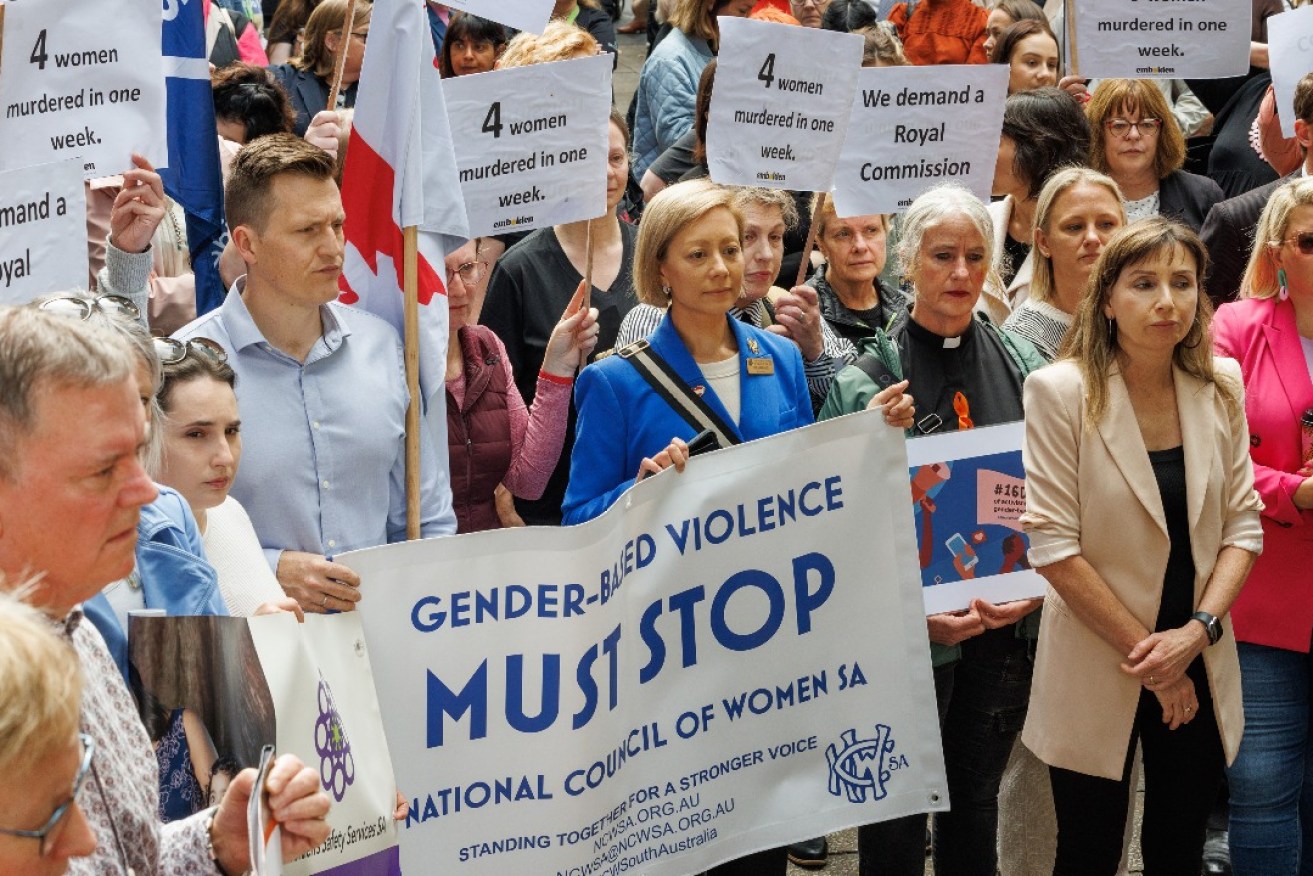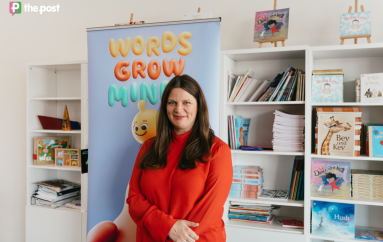Call it by its name: Femicide
Amid a rising toll of South Australian women dying by the hands of men, Anna Finizio says it’s time for the community and leaders to confront the issue.

A protest at state parliament after four women were killed in one week. Photo: Tony Lewis/InDaily
It’s been a solemn week in South Australia. Collectively we mourned the tragic loss of Charlie Stevens. The son of Grant Stevens, our beloved Commissioner of Police.
I’ve had the privilege of working with the Commissioner. An impressive operator, he’s what we call in the biz a safe pair of hands. Yet this week we have all wanted to wrap our arms around him and his family. His tribute to his son, “101” is one of the most moving pieces I’ve ever read.
Unfortunately, this is not the only tragedy we have seen unfold in recent days.
Four women allegedly slain by men in South Australia this week, bringing our national domestic violence tally up to six women in seven days. The numbers escalated so quickly that national media outlet Mamamia had to update an article titled “Four women. One week. The national emergency our leaders refuse to address” just 24 hours after they published it.
It’s time to face a hard truth.
Women in this country are more likely to be murdered by a man they know.
It’s not murderous monsters hiding in dark alleyways preying on women “brazen” enough to walk alone at night. It’s the men they have loved, the men they have cared for. You see, women aren’t safe anywhere in Australia. Especially not in their own homes.
It’s not the first time this year we have had multiple women killed by men they know in a short period of time. Every time I hear a news report that states a woman has been found dead, my heart sinks. I know what’s coming: inevitably the alleged killer will be a male known to the victim, but that’s where it ends. When it comes to media coverage, women dying at the hands of men just doesn’t seem to make headlines.
Advocate Chantel Contos recently criticised the media for the lack of attention given to domestic violence in Australia. She compared the media coverage of the death of Friends star Matthew Perry to the coverage of domestic violence at the time, which was only earlier this month when we lost six women to male violence in ten days.
The longer we ignore this national crisis, the sooner it will become our national shame.
The media has an important role to play in conveying the prevalence of this issue to every Australian and ensuring it sits high on the policy agenda of every leader in our country.
But first let’s call it out and call it what it is: Femicide.
Femicide, according to the United Nations, is the intentional killing of women driven by stereotyped gender roles, discrimination towards women, unequal power relations between men and women and harmful social norms.
We remain far from gender equality in Australia, and worldwide. The UNDP Gender Social Norms Index, which quantifies global bias against women found in 2023, that nine out of 10 men and women hold biases against women. Bias manifests into violence. If we don’t change attitudes towards women, we will continue to bury them. As they say, prevention is better than cure.
Monash Gender and Family Violence Prevention Centre Professor Kate Fitz-Gibbon told the ABC: “We need an elevation of the issue to match the scale of the problem”. Not only a shift in public attitude, but also in funding from both state and federal governments commensurate with the scale of domestic, family and sexual violence occurring.
It is beyond time for leadership and a comprehensive approach to address this epidemic of violence against women.
Experts describe domestic and family violence in Australia as a public health emergency. A term we are only too familiar with in this post-pandemic world. We saw leaders take swift and drastic action when it came to that public health emergency. So, what are they now waiting for?
Dr Anna Finizio is a former public policy and economics manager, a Liberal Party member and former ministerial adviser and the SA Representative for the Hilma’s Network.




